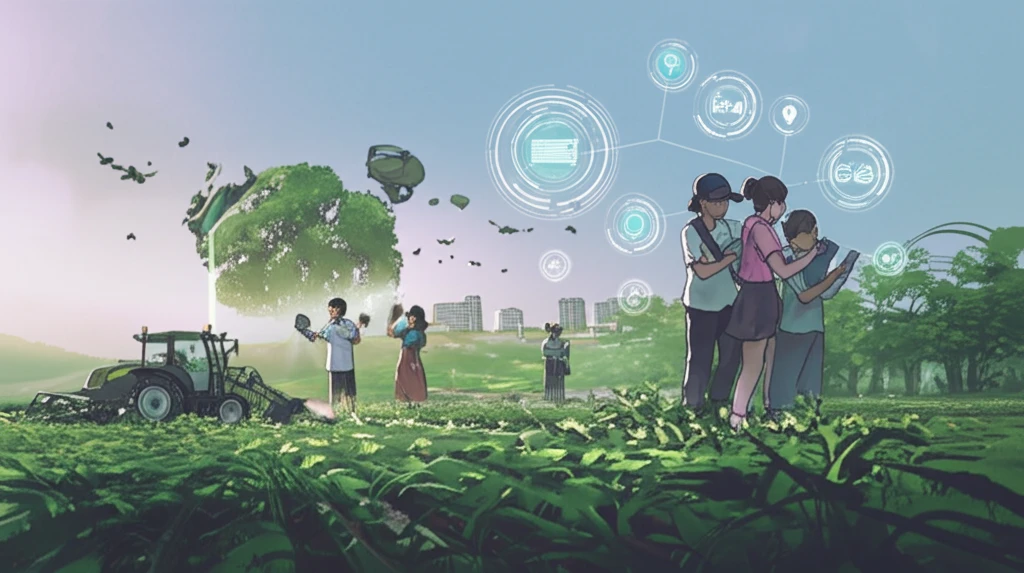
Cultivating the Future: Why Agriculture Needs More Passionate Educators
"Discover the key factors influencing aspiring teachers' decisions to specialize in agriculture, and how to inspire the next generation of agricultural leaders."
Choosing a career path is one of life’s most pivotal decisions, especially when entering college. For many students, this choice is influenced by a myriad of factors, ranging from personal interests to societal perceptions. This is particularly true for those considering a specialization in agriculture, a field that is not only essential for food security but also offers a diverse range of career opportunities.
In Swaziland, understanding the factors that influence students' decisions to specialize in agriculture is crucial for ensuring a pipeline of qualified and passionate educators. These teachers play a vital role in shaping the next generation of agricultural leaders and promoting sustainable farming practices. A recent study delved into the motivations and influences behind students' choices, providing valuable insights for colleges and policymakers alike.
This article will explore the key findings of this research, highlighting the factors that drive students to pursue agriculture as a specialization. We'll also discuss the implications of these findings and offer recommendations for fostering greater interest in agricultural education, ultimately contributing to a more sustainable and food-secure future.
What Drives Students to Choose Agriculture? Unveiling the Key Influencers

The study, conducted among primary teachers' diploma college students in Swaziland, employed a comprehensive approach to identify the factors influencing their choice of specialization. Researchers utilized a desk review, a Modified Delphi technique, and a survey questionnaire to gather data from 351 student teachers across three training colleges. The data was then analyzed using descriptive statistics and multinomial logistic regression to pinpoint the most significant predictors.
- Department Image: A positive perception of the agriculture department within the college significantly increased the likelihood of students choosing this specialization.
- Gender: The study found that gender influences the choice of specialisation.
- Influence of Professionals: Exposure to and guidance from professionals in the agricultural field also proved to be a significant factor.
Cultivating a Brighter Future: Recommendations for Agricultural Education
The study's findings offer valuable insights for colleges and policymakers seeking to enhance agricultural education and inspire the next generation of agricultural leaders. Here are some key recommendations:<ul><li><b>Highlight Career Opportunities:</b> Emphasize the diverse career paths available to agriculture graduates, showcasing the potential for innovation, entrepreneurship, and leadership in this field.</li><li><b>Promote the Importance of Agriculture:</b> Advocate for policies that support agricultural education and research, recognizing the vital role of agriculture in food security, economic development, and environmental sustainability.</li></ul>By implementing these recommendations, we can cultivate a brighter future for agricultural education and ensure a sustainable and food-secure world for generations to come.
